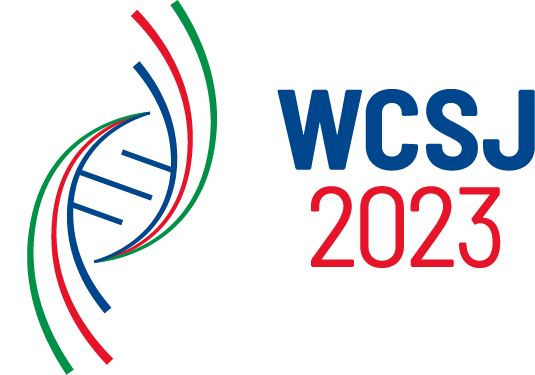|
With a month until we welcome you to Medellín, we are thrilled to share the latest updates on speakers for our plenaries. You’ll find the lowdown on some of our topics and speakers on our website and below we highlight more of the plenary programme.
Trust in Science
Confidence in research: global implications for researchers and the media
Science and its practice are undergoing rapid change, and the pandemic has transformed scientific endeavour in a number of ways – giving it greater prominence and recognition, but creating higher expectations around pace and certainty. Navigating huge quantities of information, finding relevant research, knowing what can be relied upon and tying together quality insights has been made harder for researchers, as well as the media.
This discussion will unpack the drivers of confidence in research and discuss the role that different sectors, including journalism, can play in supporting a credible research ecosystem. What are potential solutions that can support scientific research and communications communities in a way that ultimately improves research integrity and public confidence in science?

Dante Cid is Vice-President of Academic Relations for Elsevier in Latin America, represents Elsevier as President of the Brazilian Publishers Association, President of the Pro-Livro Institute for Literacy, and in several other organisations. He has a Master of Sciences in Artificial Intelligence from the Pontifical Catholic University of Rio de Janeiro and graduated summa cum laude as Computers Engineer by IME, the Military Institute of Engineering, Brazil.

Sergio Cristancho is Vice Minister of Knowledge, Innovation and Productivity - Colombia. He is a full professor at the National Faculty of Public Health and was Vice Chancellor for Research at the University of Antioquia. He has been a full-time professor at the University of Illinois as well as visiting professor at renowned universities in Colombia, Brazil, Chile, Mexico, and Guatemala. Crisancho was Vice President and Member of the Board of Directors of the NGO Salud Latina / Latino Healthof Chicago, as well as a member of the Editorial Board of Family & Community Health Magazine.

Andrés Roldan. Executive Director Parque Explora where he has helped to build a vision for inspiring, communicating and transforming, through interactive learning environments for the public understanding of science and technology. Parque Explora is one of the most visited museums in Colombia and is a top reference science centre in Latin America with a vast collection of experiences on science, technology, biodiversity and innovation. Andrés has experience in creating, conceptualising, designing, building, reinventing, fundraising and managing museums, exhibitions, exhibits, educational strategies and learning environments. This experience is the result of a long term vision of connecting society, through the inclusion and integration of communities with urban planning, architecture, culture, education, social innovation, science and technology in the most vulnerable areas of the city.
More speakers to be announced…

Open science
Open science combines various movements, practices and actions that aim to make scientific research from all fields accessible to everyone for the benefits of scientists and society as a whole. By promoting science that is more accessible, inclusive and transparent, open science furthers the right of everyone to share in scientific advancement and its benefits as stated in Article 27.1 of the Universal Declaration of Human Rights.
This session will introduce the UNESCO Recommendation on Open Science, which recognizes communication as essential for truly open and equitable science. Panellists will discuss the steps that countries and science actors are taking to transition to open science in different contexts. Participants will be asked to help develop guidance on nurturing effective open science journalism: What role does journalism play in open science? How can the transition to open science support science journalism?

Guillermo Anlló is Senior Programme Specialist of UNESCO's STI Policy Program for Latin America and the Caribbean, where he is responsible for regional activities in STI Policy Advice, Open Science; STEM Education, Science Communication, Gender and STEM, STI Information, Promotion of Basic Sciences and Engineering, Society-Science-Policy Relationship, Science and Diplomacy. He has a degree in Economics from UBA and a master's degree in Science, Technology and Society from Universidad Nacional de Quilmes, Argentina. He has specialised in science, technology and innovation STI policies, bioeconomy and innovation indicators.

Yesenia Olaya Requene is Vice Minister of Talent and Social Appropriation of Knowledge of Minciencias. During her professional career, she has led the inclusion and academic training of students from 26 countries in Latin America, the United States, and Europe, including social leaders, public officials, undergraduate and graduate students, in the field of Afro-Latin American studies. She has a doctorate in anthropology from the National Autonomous University of Mexico, and has served as academic coordinator of the Certificate in Afro-Latin American Studies of the Afro-Latin American Research Institute at Harvard University.
|
